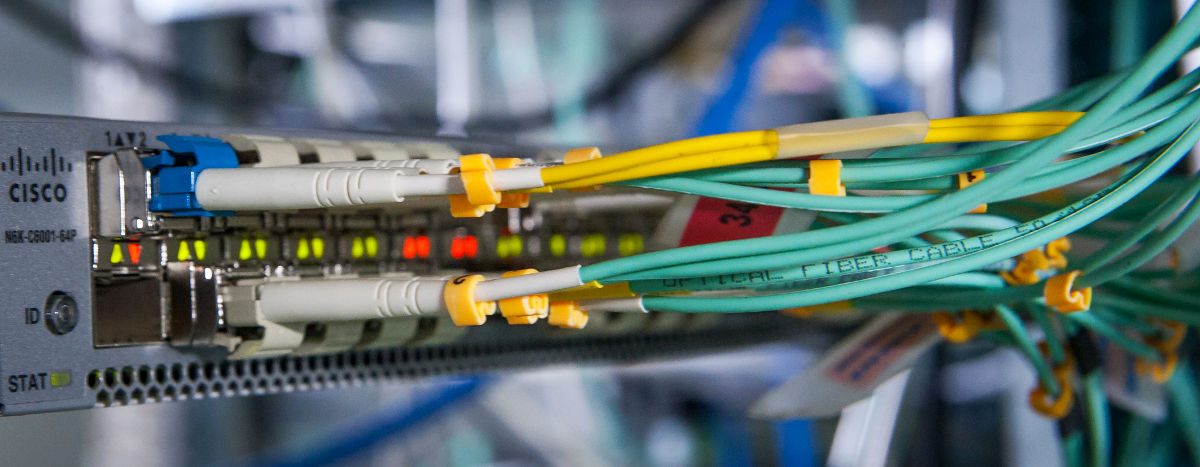As we all know, optical fiber cables shall be listed as suitable for the purpose. Cable usually be marked in accordance with NEC (National Electrical Code) Table 770.19. Most manufacturers put the marking on the optical fiber cable jacket every 2′ to 4′. The code does not tell you what type of cable to use (such as single-mode or multi-mode). In fact, It tells you this cable can be resistant to the spread of fire. This text will introduce the knowledge of optical fiber cable fire ratings and help you choose the right fiber for your applications.
Types of Fire-proof Optical Fiber Cable
There are three kinds of cable jacket fire ratings: plenum, riser and general purpose. Plenum cables are held to the most stringent testing of any of the cables rated by the NEC, rated for both flammability and smoke generation. Riser cables are subjected to flame tests only, and are not held to as high of a standard as Plenum rated cables. General Purpose cables may be used anywhere in commercial buildings other than areas where Riser or Plenum cables are required. Besides, optical fiber cable can be divided into nonconductive and conductive according to NEC. Nonconductive cables contain nothing that can conduct electricity, so will not accidentally energize or be energized even when closely associated with electrical conductors. Conductive cables contain noncurrent-carrying conductive members such as metallic strength members, metallic vapor barriers and metallic armor or sheath. Therefore, according to these three cable jackets and whether the cable is nonconductive or conductive, these fire-proof optical fiber cables can be divided into following several types.
| Cable Marking | Type |
| OFNP | Nonconductive optical fiber plenum cable |
| OFCP | Conductive optical fiber plenum cable |
| OFNR | Nonconductive optical fiber riser cable |
| OFCR | Conductive optical fiber riser cable |
| OFNG/OFN | Nonconductive optical fiber general-purpose cable |
| OFCG/OFC | Conductive optical fiber general-purpose cable |
Optical Fiber Cable Fire Ratings
There are three levels of fire resistance in terms of optical fiber cables. The ratings are hierarchical. For example, from a fire resistance standpoint, a higher rating can be substituted for any lower rating, but not vice versa. Also, nonconductive may be substituted for conductive, but not vice versa. The fire ratings of optical fiber are showed below, from most stringent to least.
Choosing the Right Fiber for Your Application
In terms of different cable fire ratings, there are different kinds of optical fiber cables. So choosing the right one becomes a difficult problem. Usually, for those planning or installing a fiber network, the key point of UL 1651 is to help ensure you select the right fiber for your particular need. These are described in article 770.19 of the NEC, but here are some common measures:
- For a small, in-building deployment, using a riser – OFNP, OFCP, OFNR, OFCR,OFNG, OFCG, OFN, OFC
- Within an existing, fabricated duct inside a building – OFNP, OFCP
- In a plenum space that is used for environmental air inside a public building – OFNP, OFCP
- Inside a fireproof shaft using a riser within any type of building – OFNP, OFCP, OFNR, OFCR,OFNG, OFCG, OFN, OFC
- When using a metal raceway for in-building deployments covering multiple floors and rooms/apartments – OFNP, OFCP, OFNR, OFCR,OFNG, OFCG, OFN, OFC
- For vertical runs between floors within a riser – OFNP, OFCP, OFNR, OFCR
- Within a riser cable routing assembly inside a building – OFNP, OFCP, OFNR, OFCR
- For in-building deployments with routing only on 1 floor – OFNP, OFCP, OFNR, OFCR,OFNG, OFCG, OFN, OFC
Related Article: Understanding Fiber Optic Cable Jacket & Fire Rating
